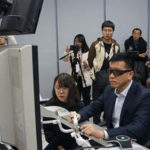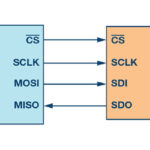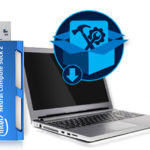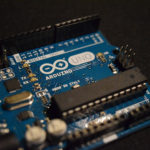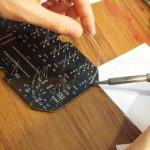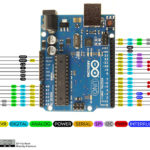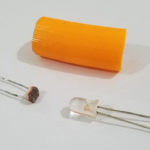Pre-commercial 5G has successfully launched in some countries, and the world is already excited about commercial 5G. A new digital era emerges as almost every household device will be able to connect with the internet, enabling further evolution of IoT. The impact of 5G will not be limited to networking. New technologies will evolve with…
8-bits and counting: 8-bit MCUs are still going strong
Microcontroller units (MCUs) never stop evolving; a more functional, featured MCU follows every model. Embedded systems have grown with continually growing MCU technology, yet there are many traditional MCUs that are still selling in high volumes. Atmel 8051 is one of those legendary MCUs which have developed a considerable demand in the market. The Atmel […]
Understanding single-ended and differential communication systems
Do you know the difference between single-ended and differential communication schemes? And when should you use them, which one you should use, and why? Single-ended communications set ups are meant to be used only for short runs or to provide communication between devices on the same Printed Circuit Board (PCB). Single-ended communications will reference the […]
DIY Artificial Intelligence
Machines are now faster and more accurate than humans at identifying information in images. Machines don’t get bored looking for flaws in widgets for hours at a time without a break. There’s been a lot of talk in the news about how Artificial Intelligence (AI) will replace jobs. The industrial revolution displaced thousands of people […]
Microcontroller power source considerations for Arduino
Powering an Arduino has a little magic to it. It wasn’t obvious to me when I first started working with them, but Arduinos have on-board regulation. Taking advantage of this allows for longer power supply wiring runs by using a higher voltage power supply than the nominal 5V or 3.3V needed by the microcontroller (MCU) […]
Soldering tips for newbies
The traditional, older type of solder is a mixture of lead (Pb) and tin (Sn). This type of (60/40 – Pb/Sn) solder melts at 200°C and is typically made up of 60 percent tin and 40 percent lead. However, lead-free solder is desirable today, in terms of avoiding a toxic environment. Lead-free solder is a […]
Understanding delay for I/O: Using Arduino functions vs. coding the MCU
Sometimes the conveniences of using an Arduino board start to conflict with the performance that you expect, at least from a strict engineering point of view. When you develop with the Arduino Integrated Development Environment (IDE), there are some things you need to know to understand the processing delays, functions, and how to overcome them […]
Protecting an MCU: Build your own optocoupler
Microcontrollers are widely used for controlling transistors and relays. Transistors and relays are used for actuating or (energizing) equipment with a higher voltage than an MCU can handle. For example, fans, lights, television, door locks, furnaces, and appliances can be automated using an MCU, however, most operate at higher voltages compared to the voltage tolerances […]
What’s new with Wi-Fi 6? Focus on high-efficiency
The first wide-spread home electrical appliance was the toaster, and 90% of homes today still have one.[i] Today, wireless connectivity to the internet is as ubiquitous as the electricity was a hundred years ago. Smartphones, tablets, wearables, laptops, televisions, Nest thermostats, Alexa, Google Home, Ring video doorbell sensors, surveillance cameras door locks, smart lighting, and […]
How to learn anything for free: Massive open online courses
Positions for someone with a Masters degree in Data Science are $300K and up, according to a friend of a friend of mine who works in Human Resources for a well-known company. The company’s data scientists, who work on algorithms to predict usage based on data collected from the product’s platforms, are continually lured away […]

